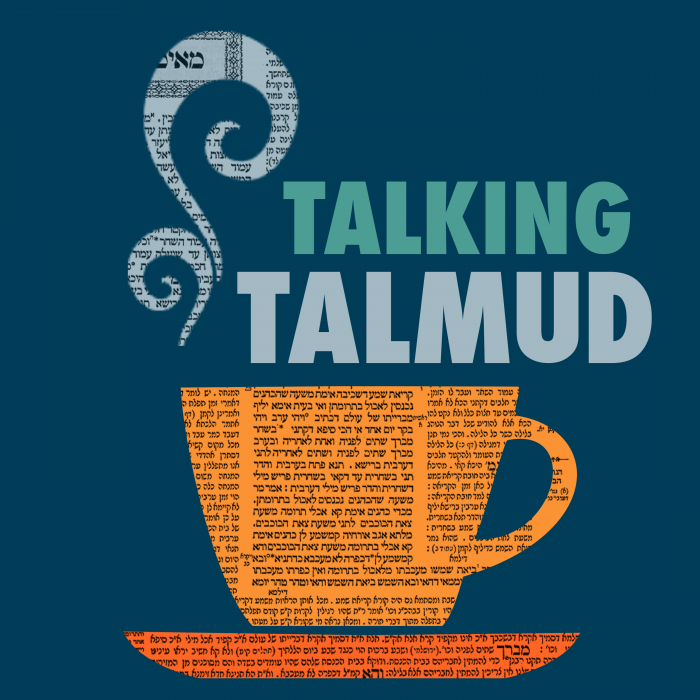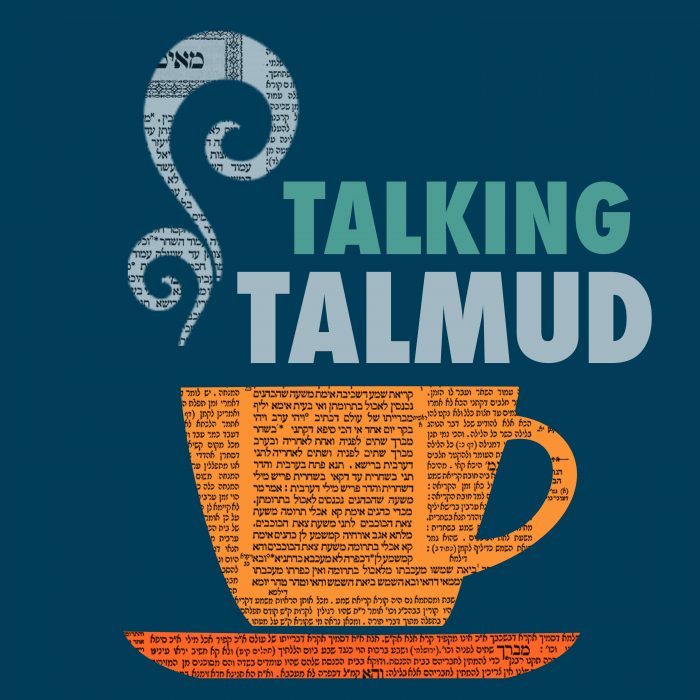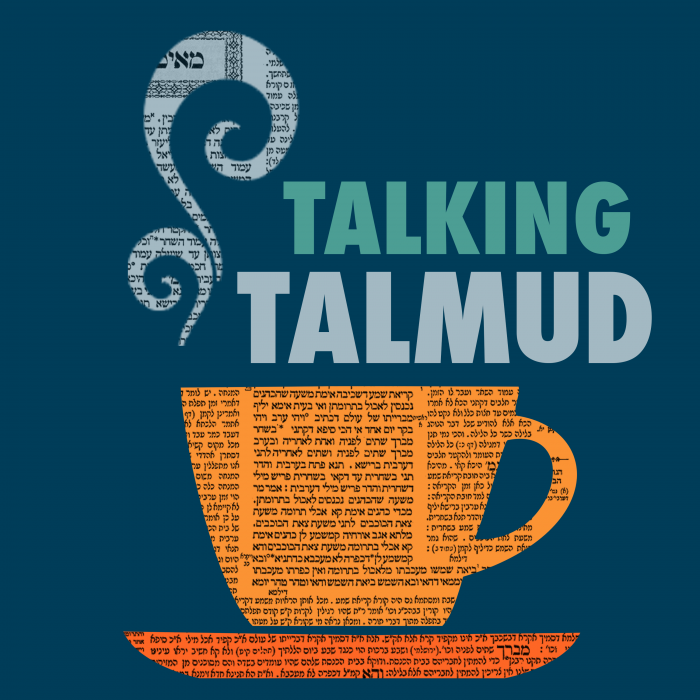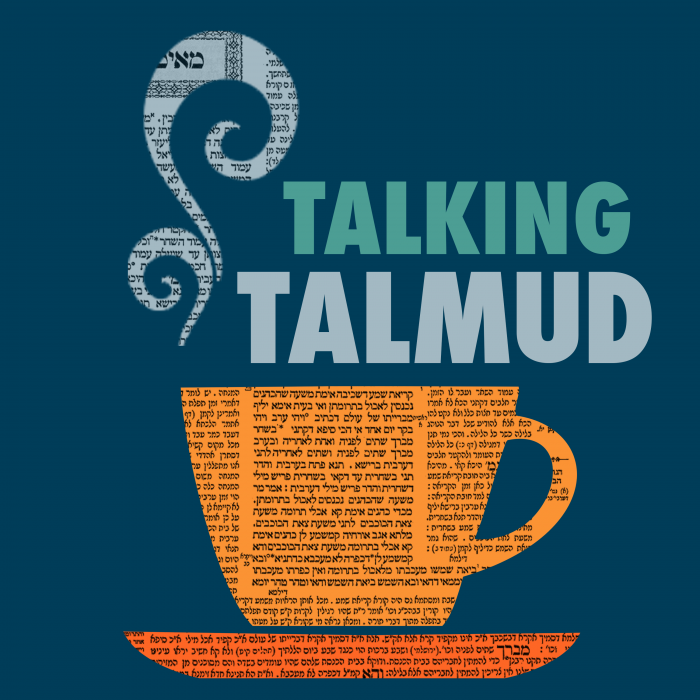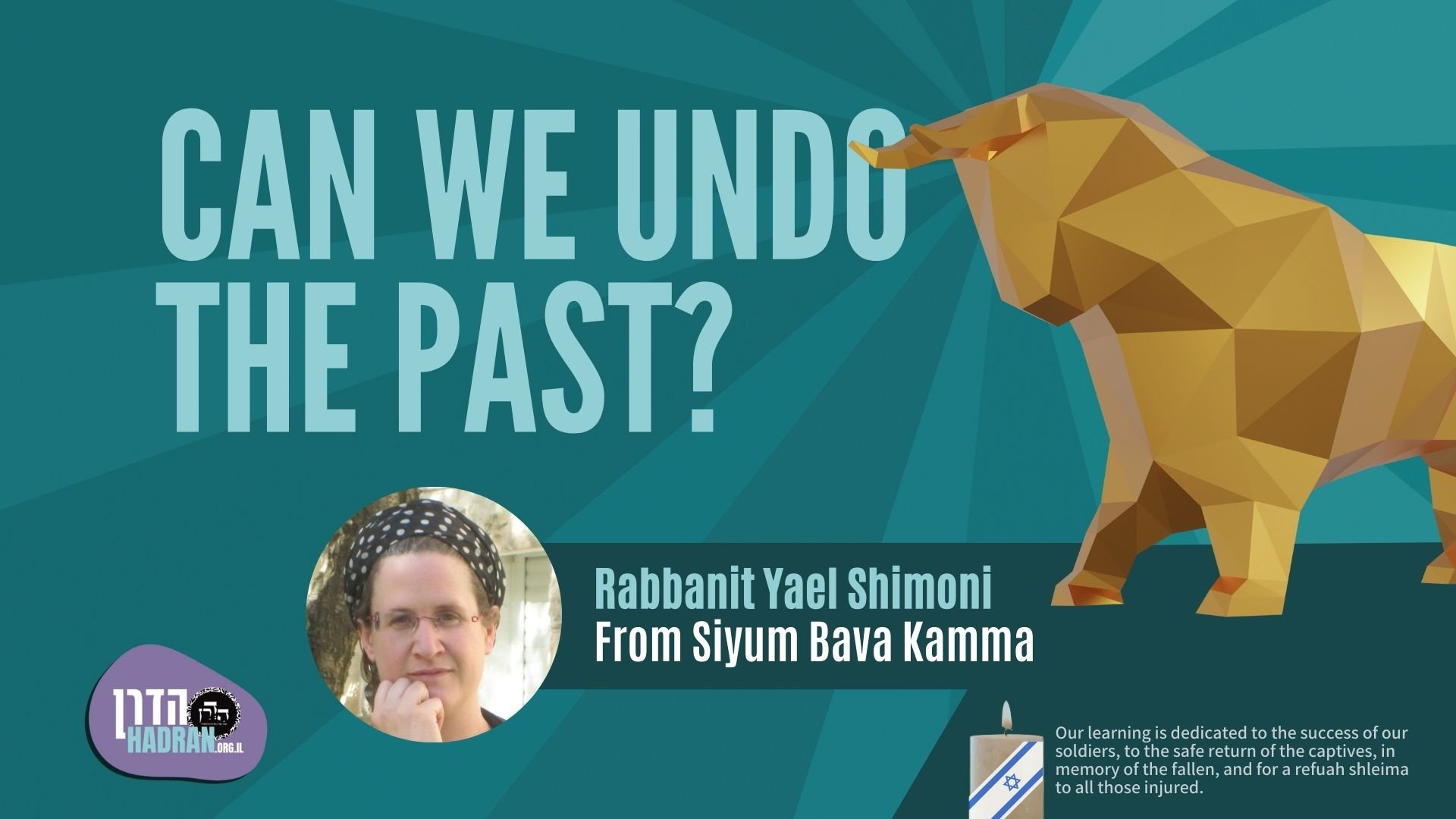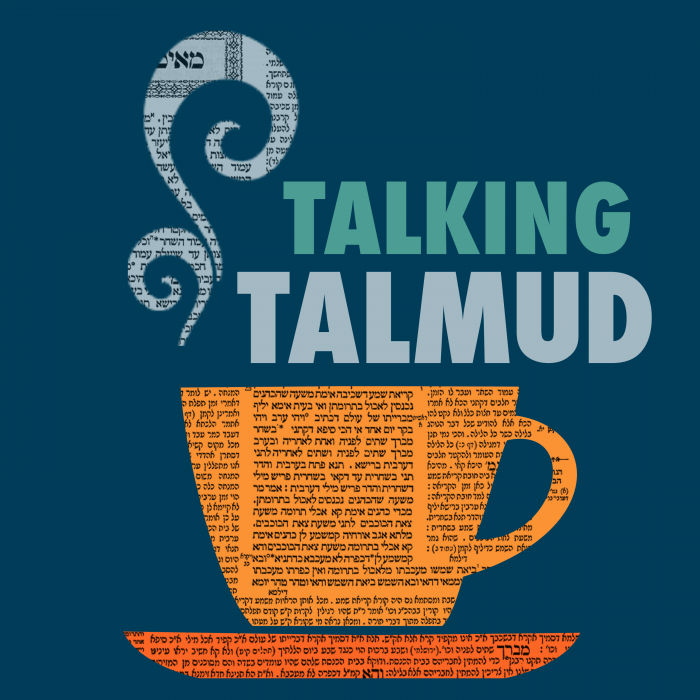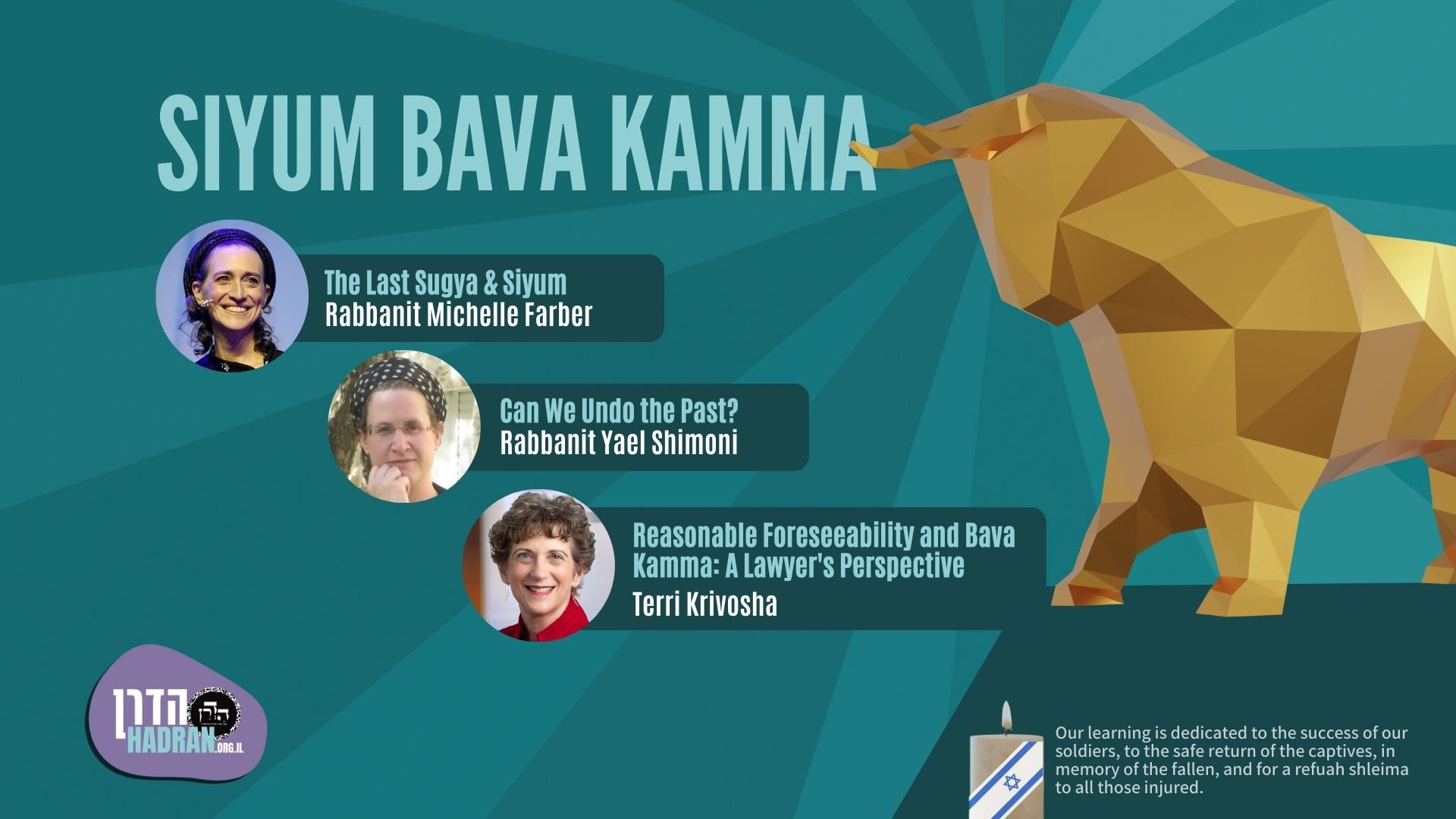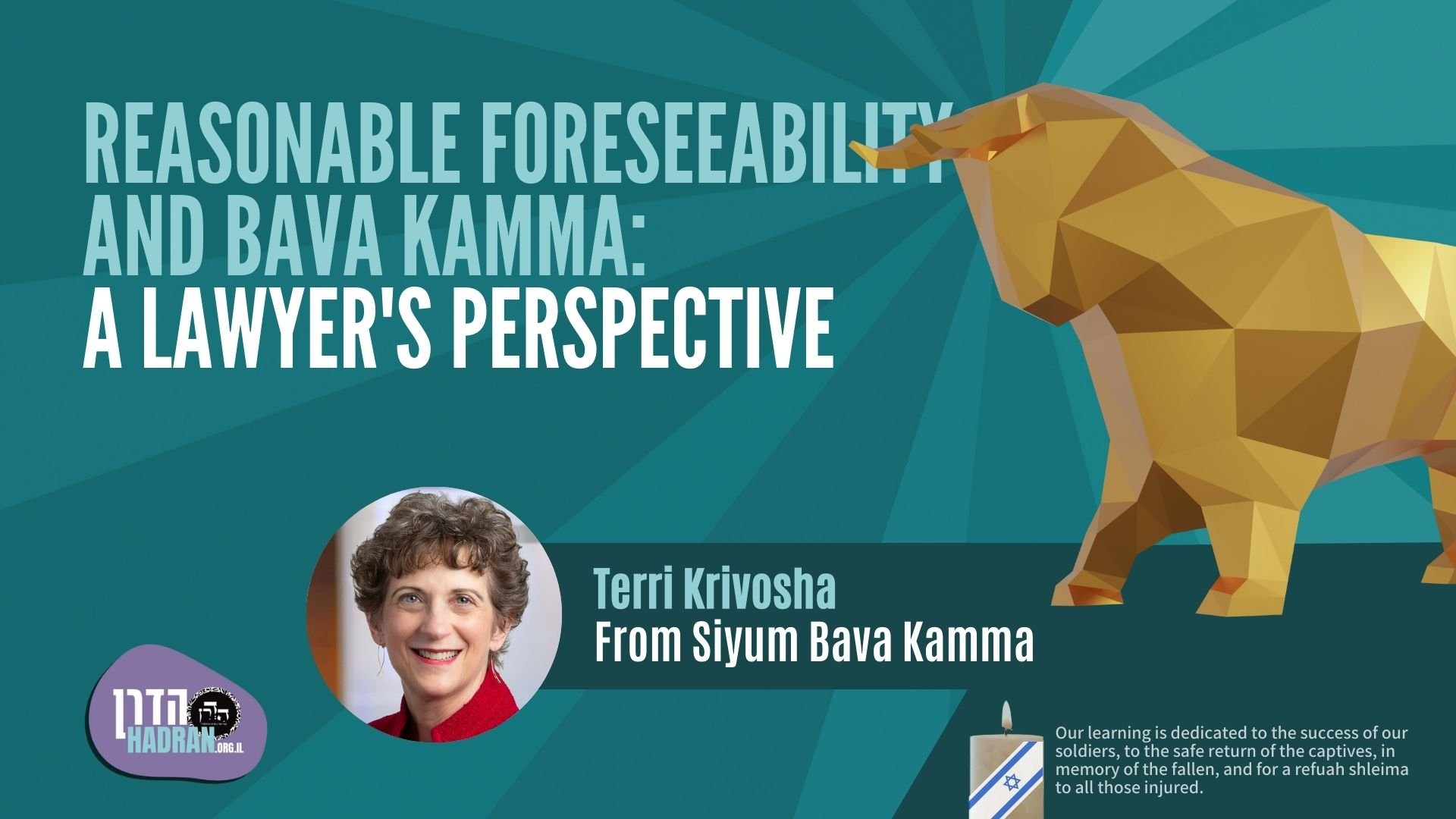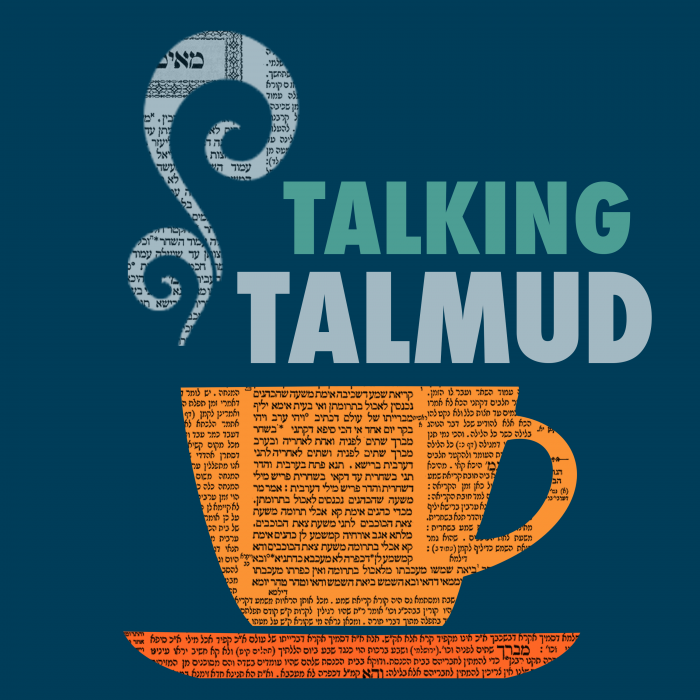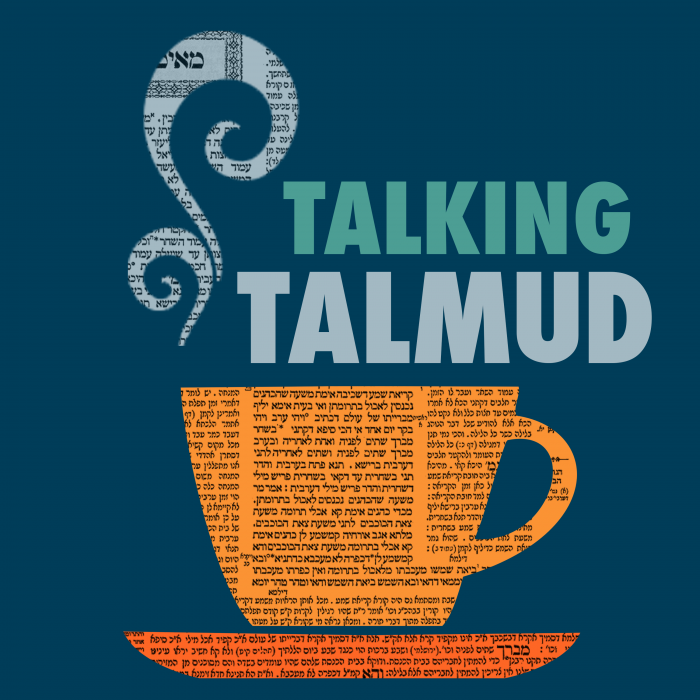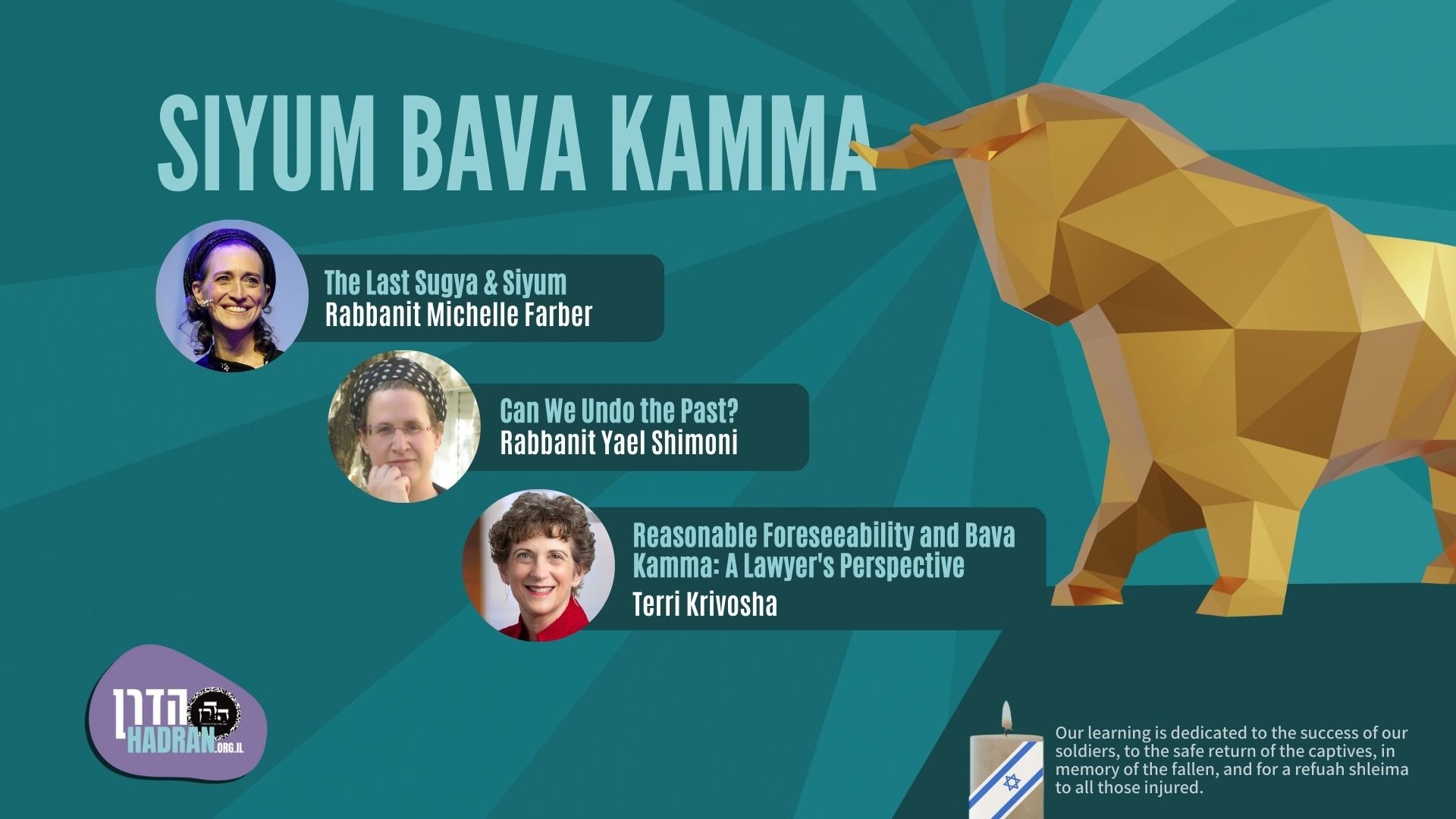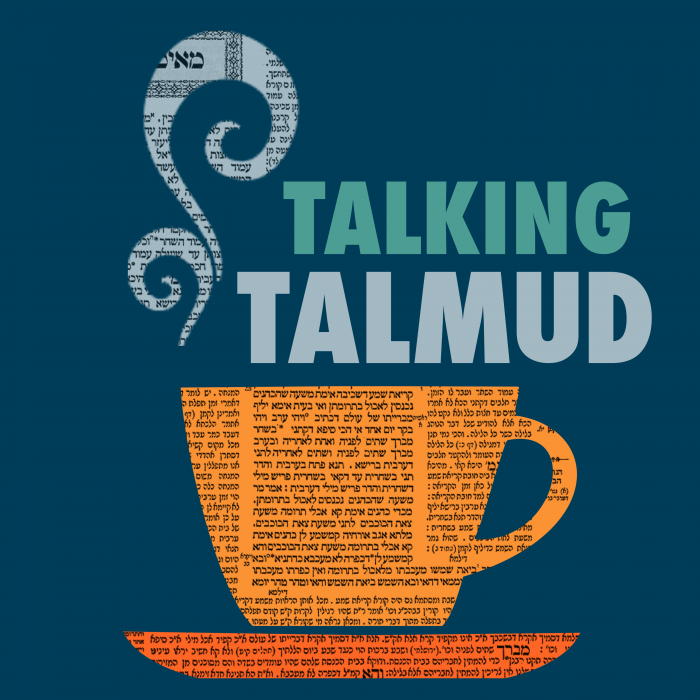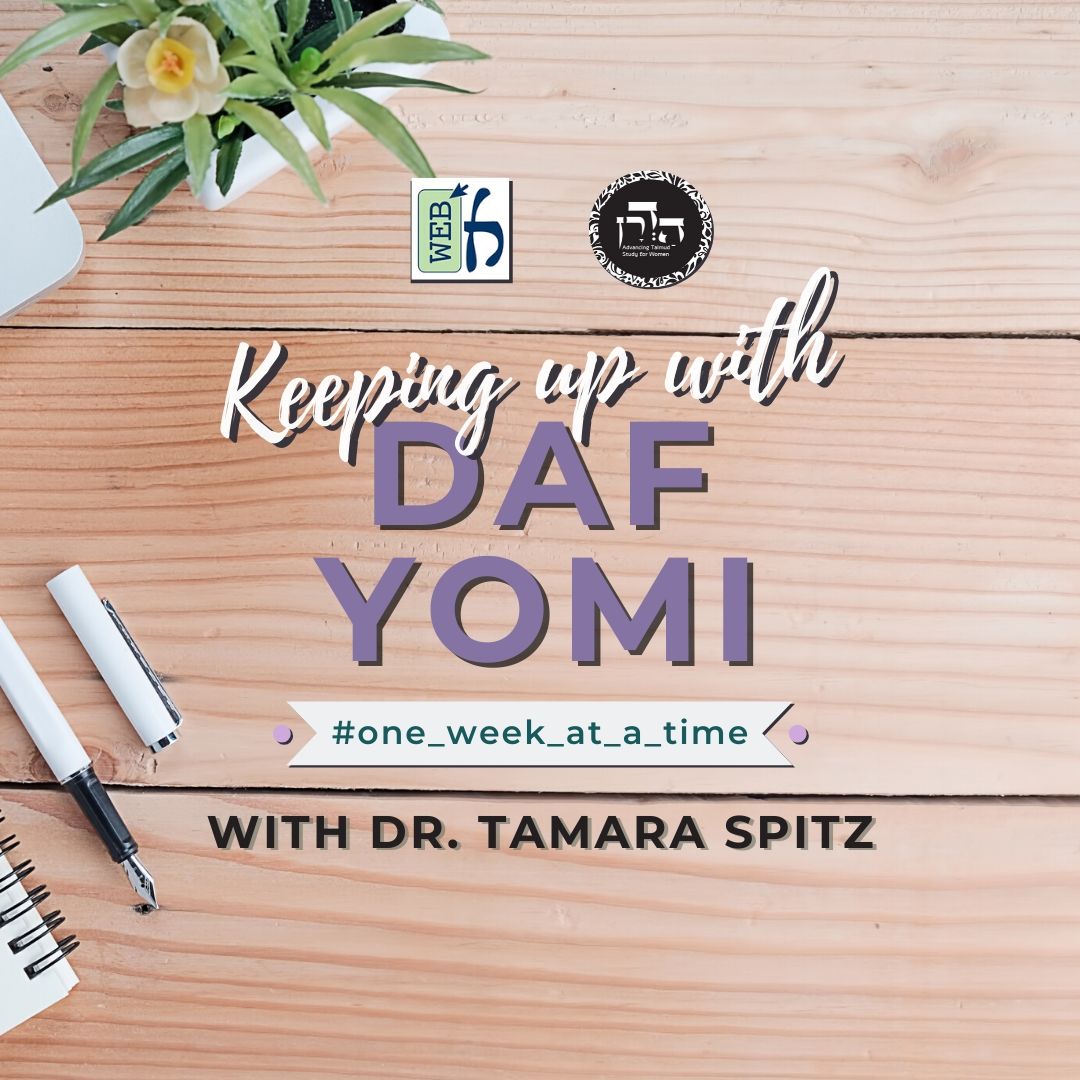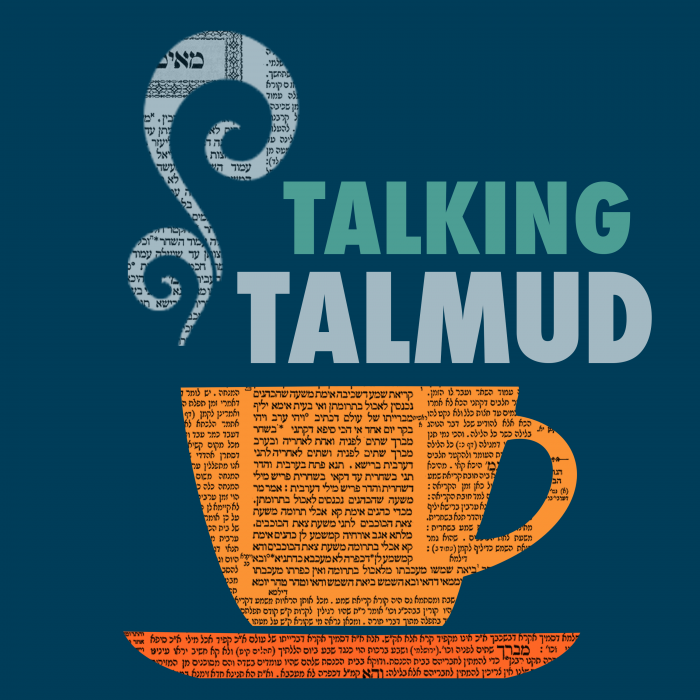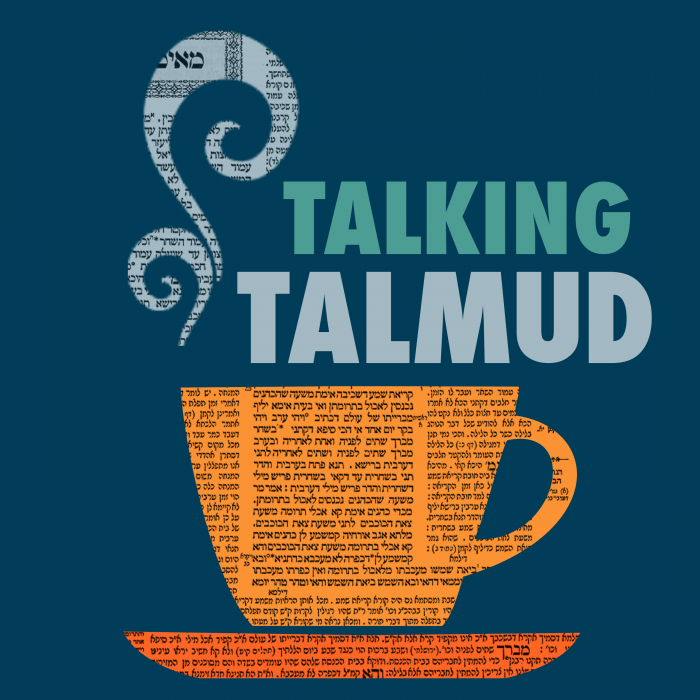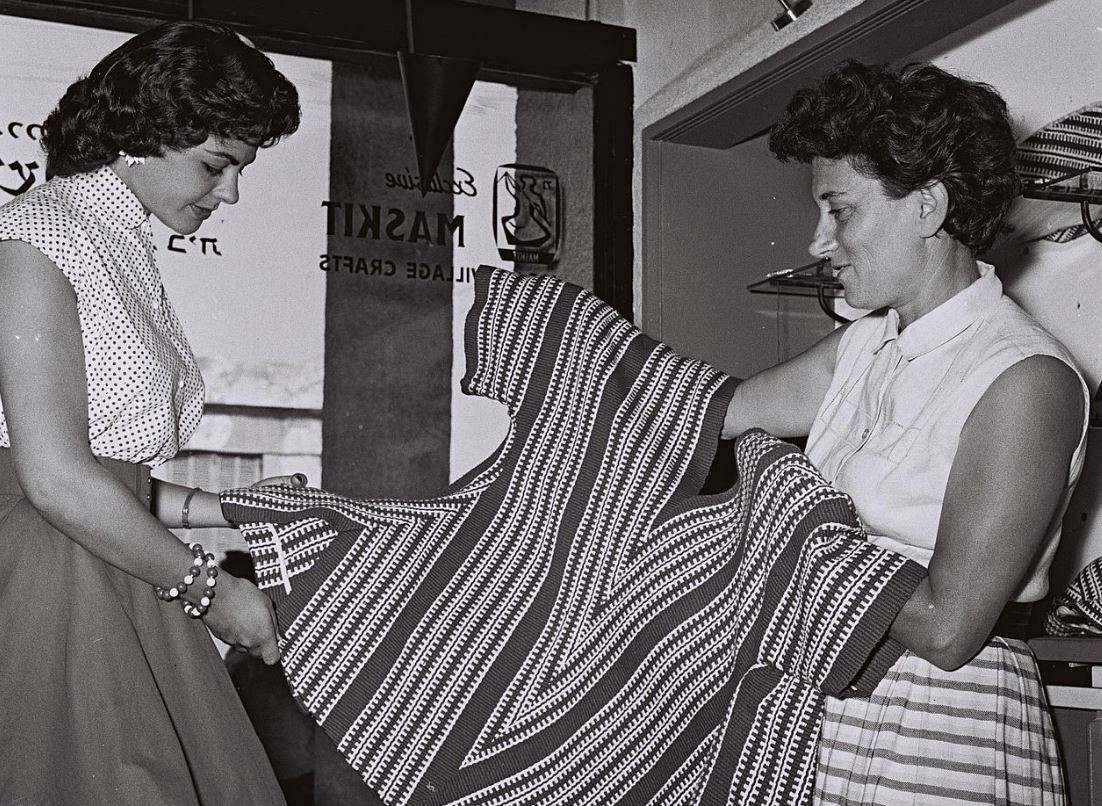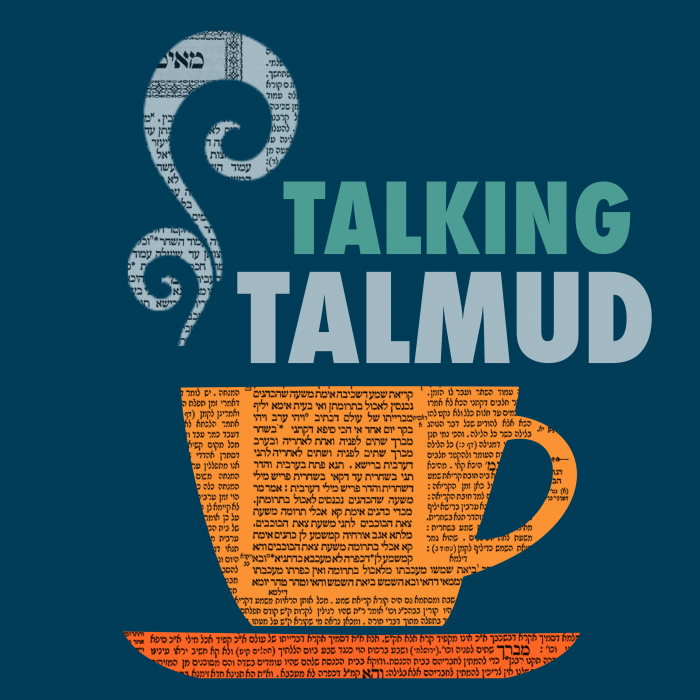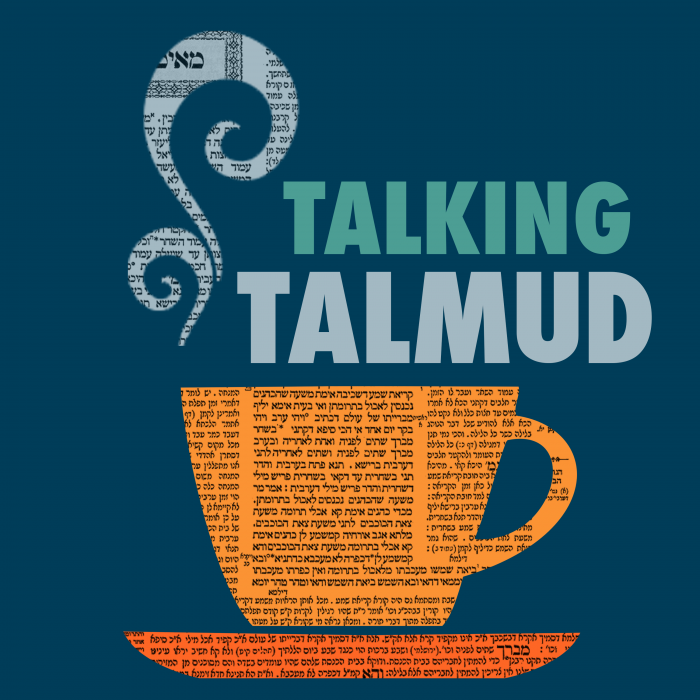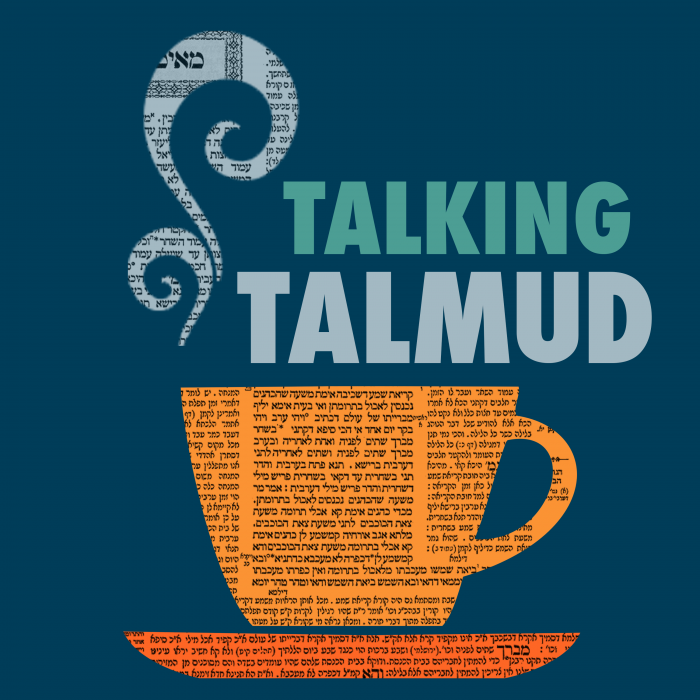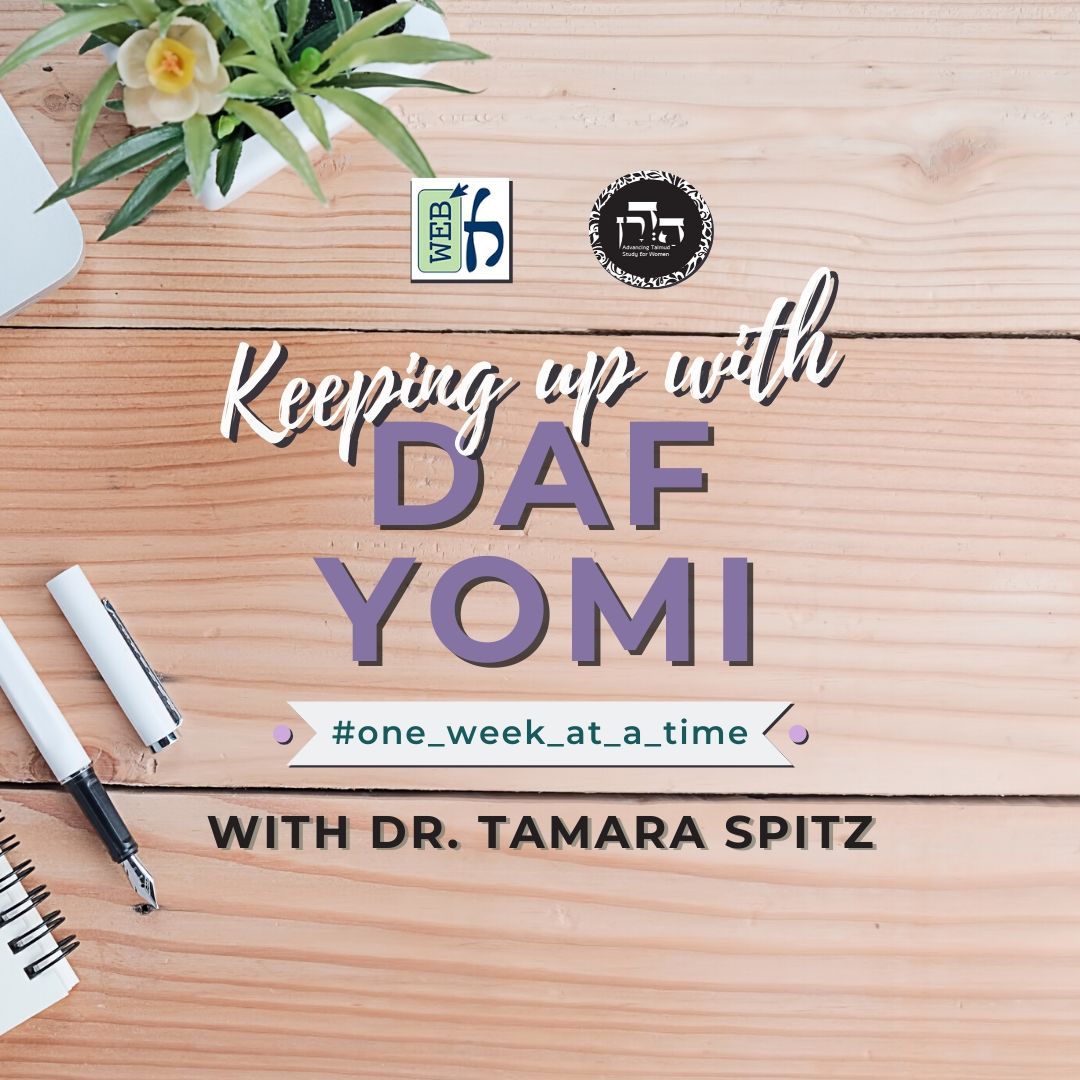Bava Kamma 81
שֶׁיְּהוּ מַרְעִין בָּחוֹרָשִׁין; וּמְלַקְּטִין עֵצִים בִּשְׂדוֹתֵיהֶם; וּמְלַקְּטִים עֲשָׂבִים בְּכׇל מָקוֹם – חוּץ מִתִּלְתָּן; וְקוֹטְמִים נְטִיעוֹת בְּכׇל מָקוֹם – חוּץ מִגְּרוֹפִיּוֹת שֶׁל זַיִת; וּמַעְיָן הַיּוֹצֵא בַּתְּחִילָּה – בְּנֵי הָעִיר מִסְתַּפְּקִין מִמֶּנּוּ; וּמְחַכִּין בְּיַמָּהּ שֶׁל טְבֶרְיָא, וּבִלְבַד שֶׁלֹּא יִפְרוֹס קֶלַע וְיַעֲמִיד אֶת הַסְּפִינָה;
The conditions are that people shall have the right to graze their animals in forests, even on private property; and that they shall have the right to gather wood from each other’s fields, to be used as animal fodder; and that they shall have the right to gather wild vegetation for animal fodder in any place except for a field of fenugreek; and that they shall have the right to pluck off a shoot anywhere for propagation and planting, except for olive shoots; and that the people of the city shall have the right to take supplies of water from a spring on private property, even from a spring that emerges for the first time; and that they shall have the right to fish in the Sea of Tiberias, i.e., the Sea of Galilee, provided that the fisherman does not build an underwater fence to catch fish, thereby causing an impediment to boats.
וְנִפְנִין לַאֲחוֹרֵי הַגָּדֵר, וַאֲפִילּוּ בְּשָׂדֶה מְלֵיאָה כַּרְכּוֹם; וּמְהַלְּכִים בִּשְׁבִילֵי הָרְשׁוּת, עַד שֶׁתֵּרֵד רְבִיעָה שְׁנִיָּה; וּמִסְתַּלְּקִין לְצִידֵּי הַדְּרָכִים מִפְּנֵי יְתֵידוֹת הַדְּרָכִים; וְהַתּוֹעֶה בֵּין הַכְּרָמִים – מְפַסֵּיג וְעוֹלֶה מְפַסֵּיג וְיוֹרֵד; וּמֵת מִצְוָה קוֹנֶה מְקוֹמוֹ.
The baraita continues the list of Joshua’s ten conditions: And people shall have the right to relieve themselves outdoors behind a fence, even in a field that is full of saffron [karkom]; and they shall have the right to walk in permitted paths, i.e., those paths that cut through a private field, throughout the summer until the second rainfall, when crops begin to sprout; and they shall have the right to veer off to the sides of the roads onto private property because of hard protrusions [yeteidot] of the road; and one who becomes lost among the vineyards shall have the right to cut down branches and enter an area of the vineyard, or cut down branches and exit an area of the vineyard, until he finds his way back to the road; and that a corpse with no one to bury it [met mitzva] acquires its place and is buried where it was found.
שֶׁיְּהוּ מַרְעִין בָּחוֹרָשִׁין. אָמַר רַב פָּפָּא: לָא אֲמַרַן אֶלָּא דַּקָּה בְּגַסָּה, אֲבָל דַּקָּה בְּדַקָּה וְגַסָּה בְּגַסָּה – לָא. וְכׇל שֶׁכֵּן גַּסָּה בְּדַקָּה דְּלָא.
The first condition mentioned in the baraita is that people shall have the right to graze their animals in forests. Rav Pappa said: We said this only with regard to small domesticated animals, i.e., sheep or goats, that graze in a forest of large trees. Small animals grazing in a forest of this kind would not destroy it. But in the case of small animals grazing in a forest with small growth, or large animals, e.g., oxen, grazing in a forest of large trees, these practices are not permitted, as in either of these scenarios the practice would destroy the forest. And, all the more so, it is understood that large animals grazing in a forest with small growth is not permitted.
וּמְלַקְּטִין עֵצִים מִשְּׂדוֹתֵיהֶם. לָא אֲמַרַן אֶלָּא בְּהִיזְמֵי וְהִיגֵי, אֲבָל בִּשְׁאָר עֵצִים – לָא. וַאֲפִילּוּ בְּהִיזְמֵי וְהִיגֵי – לָא אֲמַרַן אֶלָּא בִּמְחוּבָּרִין, אֲבָל בִּתְלוּשִׁין – לָא.
The Gemara discusses the next condition mentioned in the baraita: And that they shall have the right to gather wood from each other’s fields, to be used as animal fodder. The Gemara comments: We said this only with regard to twigs of thorns and shrubs, as the field’s owner does not care about these. But with regard to other types of wood, it is not permitted. And even with regard to twigs of thorns and shrubs, we said this only when they are attached to the ground. But when they have been detached by the owner it is not permitted, as he has already claimed them for himself.
וַאֲפִילּוּ בִּמְחוּבָּרִין – לָא אֲמַרַן אֶלָּא בְּלַחִין, אֲבָל בִּיבֵשִׁין – לָא. וּבִלְבַד שֶׁלֹּא יְשָׁרֵשׁ.
And even when they are attached we said this only when the twigs are still moist, but when they are completely dry it is not permitted, as the owner requires these for firewood. Moreover, it is permitted only provided that one does not uproot the thorn bush or shrub from the ground, but it is prohibited to pull them out with their roots.
וּמְלַקְּטִין עֲשָׂבִים בְּכׇל מָקוֹם, חוּץ מִשְּׂדֵה תִּלְתָּן. לְמֵימְרָא דְּתִלְתָּן מְעַלּוּ לַהּ עֲשָׂבִים? וּרְמִינְהִי: תִּלְתָּן שֶׁעָלְתָה עִם מִינֵי עֲשָׂבִים – אֵין מְחַיְּיבִין אוֹתוֹ לַעֲקוֹר!
The Gemara further discusses Joshua’s conditions: And that they shall have the right to gather wild vegetation for animal fodder in any place except for a field of fenugreek. The Gemara asks: Is this to say that wild vegetation is good for fenugreek, and therefore the owner wants it to be left in his field? The Gemara raises a contradiction from a mishna that deals with diverse kinds (Kilayim 2:5): With regard to fenugreek that sprouted alongside various types of wild vegetation, one is not required to uproot the vegetation. Although it is generally prohibited to grow different species of vegetables together in one patch, if the species have a negative impact on each other’s growth, it is not prohibited. In this case the wild vegetation may be left alongside the fenugreek because it is harmful to it, and the halakhot of diverse kinds do not apply in a case of this kind.
אָמַר רַב יִרְמְיָה: לָא קַשְׁיָא; כָּאן לְזֶרַע, כָּאן לְזִירִין. לְזֶרַע – קָשׁוּ לַהּ עֲשָׂבִים, דְּמַכְחֲשִׁי לַהּ; לְזִירִין – מְעַלֵּי לַהּ, דְּכִי קָיְימִי בֵּינֵי עֲשָׂבִים – מִירַכְּבָא.
Rav Yirmeya said: This is not difficult. Here, the mishna is referring to a case where the fenugreek was planted for its seeds; there, the baraita that lists Joshua’s conditions is referring to fenugreek planted for its stalks. When it is planted for its seeds, wild vegetation is bad for it, as it weakens the fenugreek and lowers its yield. But when it is planted for its stalks, wild vegetation is good for it, as when it is situated among vegetation it climbs on it and thereby grows to a larger size.
אִיבָּעֵית אֵימָא: כָּאן לְאָדָם, כָּאן לִבְהֵמָה. דְּכֵיוָן דְּלִבְהֵמָה הוּא דְּזַרְעַהּ, עֲשָׂבִים נָמֵי מִיבְּעֵי לַהּ. וּמְנָא יָדְעִינַן? אָמַר רַב פָּפָּא: שָׁארְיָה מְשָׁארֵי – לְאָדָם, לָא שָׁארְיָה מְשָׁארֵי – לִבְהֵמָה.
If you wish, say instead another answer: Here, the mishna is referring to a case where the fenugreek was planted for human consumption; and there, the baraita is referring to fenugreek planted for animal consumption. Since the owner sowed the fenugreek for animal consumption, the wild vegetation is also required by him, as this too can be used for animal fodder. And how can we know if a particular fenugreek field was planted for human or animal consumption, and thereby know whether the vegetation may be picked and taken? Rav Pappa said: If he planted it in rows [mesharei], it is for human consumption; if he did not plant in rows but planted haphazardly, it is for animal consumption.
וְקוֹטְמִין נְטִיעָה בְּכׇל מָקוֹם, חוּץ מִגְּרוֹפִיּוֹת שֶׁל זַיִת. פֵּירְשׁוּ רַבִּי תַּנְחוּם וְרַבִּי בִּרְיָיס מִשּׁוּם זָקֵן אֶחָד: בְּזַיִת – כְּבֵיצָה. בְּקָנִים וּבִגְפָנִים – מִן הַפְּקָק וּלְמַעְלָה. וּשְׁאָר כׇּל הָאִילָנוֹת – מִן אוּבּוֹ שֶׁל אִילָן, וְלֹא מִן חוּדּוֹ שֶׁל אִילָן;
The baraita teaches: And that they shall have the right to pluck off a shoot anywhere for propagation and planting, except for olive shoots, as this would cause damage to the olive tree. Rabbi Tanḥum and Rabbi Berayes explained this in the name of a certain elder: With regard to olive trees, one must leave a shoot the size of an egg on the trunk when detaching it from the trunk; in the case of reeds and grape vines, he may take shoots only from the place of the first knot and above. And with regard to all other trees, shoots may be taken only from the thick part of the tree, where there are many branches growing, but not from the thin part of the tree.
מִן חָדָשׁ שֶׁאֵינוֹ עוֹשֶׂה פֵּירוֹת, וְלֹא מִן יָשָׁן שֶׁהוּא עוֹשֶׂה פֵּירוֹת; מִמְּקוֹם שֶׁאֵינוֹ רוֹאֶה אֶת הַחַמָּה,
Furthermore, one may take from a new branch, which does not yet produce fruit, but not from old branches, which do produce fruit; and one may take from a place that does not face the sun,
וְלֹא מִמְּקוֹם שֶׁהוּא רוֹאֶה אֶת הַחַמָּה; שֶׁנֶּאֱמַר: ״וּמִמֶּגֶד תְּבוּאֹת שָׁמֶשׁ״.
but not from a place that faces the sun, where the fruits grow copiously, as it is stated: “And for the precious things of the fruits of the sun” (Deuteronomy 33:14).
וּמַעְיָן הַיּוֹצֵא תְּחִילָּה – בְּנֵי הָעִיר מִסְתַּפְּקִין מִמֶּנּוּ. אָמַר רַבָּה בַּר רַב הוּנָא: וְנוֹתֵן לוֹ דָּמִים. וְלֵית הִלְכְתָא כְּווֹתֵיהּ.
The baraita further states: And the people of the city shall have the right to take supplies of water from a spring on private property, even from a spring that emerges for the first time. Rabba bar Rav Huna says: And although one may draw water from that spring, he must give money to reimburse the owner of the property. The Gemara concludes: But the halakha is not in accordance with his opinion, as the water may be taken without payment.
וּמְחַכִּין בְּיַמָּהּ שֶׁל טְבֶרְיָא, וּבִלְבַד שֶׁלֹּא יִפְרוֹס קֶלַע וְיַעֲמִיד אֶת הַסְּפִינָה – אֲבָל צָד הוּא בִּרְשָׁתוֹת וּבְמִכְמָרוֹת. תָּנוּ רַבָּנַן: בָּרִאשׁוֹנָה הִתְנוּ שְׁבָטִים זֶה עִם זֶה שֶׁלֹּא יִפְרוֹס קְלִיעָה וְיַעֲמִיד אֶת הַסְּפִינָה, אֲבָל צָד הוּא בִּרְשָׁתוֹת וּבְמִכְמָרוֹת.
The next of Joshua’s conditions is: And that they shall have the right to fish in the Sea of Tiberias, provided that the fisherman does not build an underwater fence to catch fish, thereby causing an impediment to boats. The Gemara comments: But one may fish with nets and with traps. The Sages taught in a baraita: Initially, the tribes stipulated with each other that one may not build an underwater fence to catch fish, thereby causing an impediment to boats, but one may fish with nets and with traps.
תָּנוּ רַבָּנַן: יַמָּהּ שֶׁל טְבֶרְיָא – בְּחֶלְקוֹ שֶׁל נַפְתָּלִי הָיְתָה. וְלֹא עוֹד, אֶלָּא שֶׁנָּטַל מְלֹא חֶבֶל חֵרֶם בִּדְרוֹמָהּ, לְקַיֵּים מַה שֶּׁנֶּאֱמַר ״יָם וְדָרוֹם יְרָשָׁה״.
The Sages taught in a baraita: The Sea of Tiberias was located in the portion of the tribe of Naphtali. Moreover, the tribe of Naphtali received in addition a small stretch of land equal to the full length of the rope of a fish trap. This stretch of land was located to the south of the sea, where the members of this tribe could spread out their fishing nets, to fulfill that which is stated: “And of Naphtali he said: O Naphtali, satisfied with favor, and full with the blessing of the Lord; possess the sea and the south” (Deuteronomy 33:23).
תַּנְיָא, רַבִּי שִׁמְעוֹן בֶּן אֶלְעָזָר אוֹמֵר: תְּלוּשִׁין שֶׁבֶּהָרִים – בְּחֶזְקַת כׇּל הַשְּׁבָטִים הֵן עוֹמְדִים, וּמְחוּבָּרִים – בְּחֶזְקַת אוֹתוֹ הַשֵּׁבֶט.
It is taught in a baraita: Rabbi Shimon ben Elazar says: Detached items that are found in the mountains at the time of conquest are considered to be in the possession of all the tribes equally, as spoils of war; but that which is attached, e.g., trees, are considered to be in the sole possession of that tribe that would receive the land where the tree was found.
וְאֵין לְךָ כׇּל שֵׁבֶט וְשֵׁבֶט מִיִּשְׂרָאֵל שֶׁאֵין לוֹ בָּהָר וּבַשְּׁפֵלָה וּבַנֶּגֶב וּבָעֵמֶק, שֶׁנֶּאֱמַר: ״פְּנוּ וּסְעוּ לָכֶם וּבֹאוּ הַר הָאֱמוֹרִי וְאֶל כׇּל שְׁכֵנָיו; בָּעֲרָבָה, בָהָר, בַּשְּׁפֵלָה וּבַנֶּגֶב וּבְחוֹף הַיָּם וְגוֹ׳. וְכֵן אַתָּה מוֹצֵא בַּכְּנַעֲנִים וּבַפְּרִיזִּים וּבָאֱמוֹרִיִּים שֶׁלִּפְנֵיהֶם, שֶׁנֶּאֱמַר: ״וְאֶל כׇּל שְׁכֵנָיו״ – אַלְמָא שְׁכֵנָיו הָכִי הָווּ.
The baraita adds: And you do not have a single tribe of Israel that did not have in its portion at least some land in the mountains, and some in the lowland, and some in the countryside, and some in the valley, as it is stated: “Turn and take your journey, and go to the hill-country of the Amorites and to all their neighbors, in the Arabah, in the hill-country, and in the lowland, and in the countryside, and by the seashore” (Deuteronomy 1:7). And you find similarly with regard to the Canaanites and Perizzites and Amorites who inhabited the land before the Jews, as it stated in the above verse: “The Amorites and to all their neighbors.” Apparently, the Amorites and their neighbors all had this variety of types of land in their respective territories.
וְנִפְנִין לַאֲחוֹרֵי הַגָּדֵר, וַאֲפִילּוּ בְּשָׂדֶה שֶׁהִיא מְלֵאָה כַּרְכּוֹם. אָמַר רַב אַחָא בַּר יַעֲקֹב: לֹא נִצְרְכָה אֶלָּא לִיטּוֹל הֵימֶנּוּ צְרוֹר. אָמַר רַב חִסְדָּא: וַאֲפִילּוּ בְּשַׁבָּת. מָר זוּטְרָא חֲסִידָא שָׁקֵיל וּמַהְדַּר, וַאֲמַר לֵיהּ לְשַׁמָּעֵיהּ (לִמְחַר): זִיל שִׁירְקֵיהּ.
§ The Gemara discusses the next of Joshua’s conditions: And people shall have the right to relieve themselves outdoors behind a fence, even in a field that is full of saffron. Rav Aḥa bar Ya’akov said: It goes without saying that one may relieve himself when necessary; this stipulation is necessary only to permit the one relieving himself to take a stone out of a wall in the field with which to clean himself. Rav Ḥisda said: And it is permitted to remove a stone from a wall for this purpose even on Shabbat. Mar Zutra the Pious would take a stone in this manner on Shabbat and replace it in the wall, and say to his attendant after Shabbat: Go and plaster it over, so that it would fit securely back in the wall.
וּמְהַלְּכִין בִּשְׁבִילֵי הָרְשׁוּת, עַד שֶׁתֵּרֵד רְבִיעָה שְׁנִיָּה. אָמַר רַב פָּפָּא: וְהַאי דִּידַן – אֲפִילּוּ טַל קָשֵׁי לֵהּ.
The baraita further states: And they shall have the right to walk in permitted paths, i.e., those paths that cut through a private field, throughout the summer until the second rainfall, when crops begin to sprout. Rav Pappa said: And with regard to these fields that we have in Babylonia, even dew that settled the previous night is bad for them. Even after a night of dew, the field is sufficiently moistened that trampling on it will cause damage, and therefore this condition does not apply if there was dew the previous night.
וּמְסַלְּקִין לְצִידֵּי הַדְּרָכִים, מִפְּנֵי יְתֵידוֹת הַדְּרָכִים. שְׁמוּאֵל וְרַב יְהוּדָה הֲווֹ שָׁקְלִי וְאָזְלִי בְּאוֹרְחָא, הֲוָה מִסְתַּלַּק שְׁמוּאֵל לְצִידֵּי הַדְּרָכִים. אֲמַר לֵיהּ רַב יְהוּדָה: תְּנָאִין שֶׁהִתְנָה יְהוֹשֻׁעַ, אֲפִילּוּ בְּבָבֶל?! אֲמַר לֵיהּ: שֶׁאֲנִי אוֹמֵר, אֲפִילּוּ בְּחוּצָה לָאָרֶץ.
The next item on the list of conditions is: And they shall have the right to veer off to the sides of the roads onto private property because of hard protrusions of the road. The Gemara relates: Shmuel and Rav Yehuda, who lived in Babylonia, were once walking along the road, and Shmuel veered off to the sides of the road onto private property. Rav Yehuda said to him: Do the conditions that Joshua stipulated apply even in Babylonia? Shmuel said to him: Indeed so, as I say that they apply even outside of Eretz Yisrael.
רַבִּי וְרַבִּי חִיָּיא הֲווֹ שָׁקְלִי וְאָזְלִי בְּאוֹרְחָא, אִסְתַּלַּקוּ לְצִידֵּי הַדְּרָכִים. הֲוָה קָא מְפַסַּיע וְאָזֵיל רַבִּי יְהוּדָה בֶּן (קְנוֹסָא) [נְקוֹסָא] קַמַּיְיהוּ, אֲמַר לֵיהּ רַבִּי לְרַבִּי חִיָּיא: מִי הוּא זֶה שֶׁמַּרְאֶה גְּדוּלָּה בְּפָנֵינוּ?
Rabbi Yehuda HaNasi and Rabbi Ḥiyya were once walking along the road, and they veered off to the sides of the road. Rabbi Yehuda ben Kanosa was taking broad steps on the road, to avoid the protrusions without going off to the side of the road, while walking in front of them. Rabbi Yehuda HaNasi said to Rabbi Ḥiyya: Who is this man who is showing off his supposed greatness in our presence? By acting more stringently than required by halakha, he is displaying insolence.
אֲמַר לֵיהּ רַבִּי חִיָּיא: שֶׁמָּא רַבִּי יְהוּדָה בֶּן (קְנוֹסָא) [נְקוֹסָא] תַּלְמִידִי הוּא, וְכׇל מַעֲשָׂיו לְשֵׁם שָׁמַיִם. כִּי מְטוֹ לְגַבֵּיהּ, חַזְיֵיהּ. אֲמַר לֵיהּ: אִי לָאו יְהוּדָה בֶּן (קְנוֹסָא) [נְקוֹסָא] אַתְּ, גְּזַרְתִּינְהוּ לְשָׁקָךְ בְּגִיזְרָא דְפַרְזְלָא.
Rabbi Ḥiyya said to Rabbi Yehuda HaNasi: Perhaps it is my student Rabbi Yehuda ben Kanosa. And if so, all of his actions are undertaken for the sake of Heaven; he is not acting out of haughtiness. When they reached him and Rabbi Yehuda HaNasi saw him, he said to him: If you were not Yehuda ben Kanosa I would have cut off your legs with iron shears, i.e., I would have excommunicated you for your impudence.
הַתּוֹעֶה בֵּין הַכְּרָמִים, מְפַסֵּיג וְיוֹרֵד מְפַסֵּיג וְעוֹלֶה. תָּנוּ רַבָּנַן: הָרוֹאֶה חֲבֵירוֹ תּוֹעֶה בֵּין הַכְּרָמִים, מְפַסֵּיג וְעוֹלֶה מְפַסֵּיג וְיוֹרֵד, עַד שֶׁמַּעֲלֵהוּ לָעִיר אוֹ לַדֶּרֶךְ. וְכֵן הוּא שֶׁתּוֹעֶה בֵּין הַכְּרָמִים, מְפַסֵּיג וְעוֹלֶה מְפַסֵּיג וְיוֹרֵד עַד שֶׁיַּעֲלֶה לָעִיר אוֹ לַדֶּרֶךְ.
The baraita further teaches: And one who becomes lost among the vineyards shall have the right to cut down [mefaseig] branches and enter an area of the vineyard, or cut down branches and exit an area of the vineyard, until he finds his way back to the road. The Sages taught in a baraita that this stipulation extends further: With regard to one who sees another person lost among the vineyards, he may cut down branches and enter an area of the vineyard, or cut down branches and exit an area of the vineyard until he reaches him and brings him back up to the city or to the road. And similarly, if he himself is the one who is lost among the vineyards, he may cut down branches and enter an area of the vineyard, or cut down branches and exit an area of the vineyard until he comes back up to the city or to the road.
מַאי ״וְכֵן״? מַהוּ דְּתֵימָא, חֲבֵירוֹ הוּא דְּיָדַע לְהֵיכָא מְסַלֵּק – דְּנִיפְסוֹג; אֲבָל הוּא, דְּלָא יֵדַע לְהֵיכָא קָא סָלֵיק – לָא נִיפְסוֹג, נַהְדְּרֵיהּ (נֶהְדַּר) [מִהְדָּר] בֵּי מִיצְרֵי; קָא מַשְׁמַע לַן.
The Gemara asks a question with regard to this baraita: What is the point of the clause that begins with: And similarly? It is obvious that a lost individual himself has the same right to cut down branches as one who assists him to find his way out. The Gemara answers: That is taught lest you say that it is only another person who is permitted to cut down branches, as, having seen the lost party, he knows exactly where he is going to rescue the other and help him leave the vineyard, and that is why he may cut down branches; but with regard to the lost person himself, who does not know where he is going, one might have said that he may not cut down branches but must go all the way back to the boundary of the vineyard. The baraita therefore teaches us that one who is lost may cut down branches in his quest to find his own way to the nearby town or road.
הָא דְּאוֹרָיְיתָא הוּא, דְּתַנְיָא: הֲשָׁבַת גּוּפוֹ מִנַּיִין? תַּלְמוּד לוֹמַר: ״וַהֲשֵׁבוֹתוֹ״!
The Gemara asks a further question: Why was it necessary for Joshua to stipulate that one may find his way out in this manner? After all, this halakha applies by Torah law. When one is lost, whoever can assist in helping him find his way must do so by Torah law, as it is taught in a baraita: There is a mitzva to return lost items to their owner. From where is it derived that the requirement applies even to returning his body, i.e., helping a lost person find his way? The verse states: “And you shall restore it to him” (Deuteronomy 22:2), which can also be translated as: And you shall restore himself to him. If this is required by Torah law, why did Joshua stipulate a condition to this effect?
דְּאוֹרָיְיתָא הוּא דְּקָאֵי בֵּי מִיצְרֵי, אֲתָא הוּא תַּקֵּין דִּמְפַסֵּיג וְעוֹלֶה מְפַסֵּיג וְיוֹרֵד.
The Gemara answers: By Torah law one is required only to walk in a roundabout path along the boundaries, without damaging another’s vines by cutting off branches. Joshua came and instituted the stipulation that one may go even further and cut off branches and ascend or cut off branches and descend, thereby leaving through the most direct route.
וּמֵת מִצְוָה קָנָה מְקוֹמוֹ. וּרְמִינְהִי: הַמּוֹצֵא מֵת מוּטָל בְּאִיסְרַטְיָא, מְפַנֵּהוּ לִימִין אִיסְרַטְיָא אוֹ לִשְׂמֹאל אִיסְרַטְיָא. שְׂדֵה בוּר וּשְׂדֵה נִיר – מְפַנֵּהוּ לִשְׂדֵה בוּר.
The Gemara addresses the last stipulation in the baraita: And that a corpse with no one to bury it [met mitzva] acquires its place and is buried where it was found. The Gemara raises a contradiction from a baraita: One who finds a corpse laid out on a main street [isratya] evacuates it for burial either to the right of the street or to the left of the street, but it may not be buried under the main street itself. If one can move the corpse either to a fallow field or to a plowed field, he evacuates it to the fallow field.
שְׂדֵה נִיר וּשְׂדֵה זֶרַע – מְפַנֵּהוּ לִשְׂדֵה נִיר. הָיוּ שְׁתֵּיהֶן בּוּרוֹת; שְׁתֵּיהֶן נִירוֹת; שְׁתֵּיהֶן זְרוּעוֹת – מְפַנֵּהוּ לְמָקוֹם שֶׁיִּרְצֶה!
If the choice is between a plowed field and a sown field, he evacuates it to the plowed field. If both fields were fallow, or if both were plowed, or if both were sown, he evacuates it to any side where he wishes to move it. According to this baraita, a met mitzva is not necessarily buried where it is found. It may be moved elsewhere.
אָמַר רַב בִּיבִי: בְּמוּטָּל עַל הַמֵּיצַר; מִתּוֹךְ שֶׁנִּיתָּן לְפַנּוֹתוֹ, מְפַנֵּהוּ לְכׇל מָקוֹם שֶׁיִּרְצֶה.
Rav Beivai said: The ruling of this baraita is stated with regard to a corpse laid out on the pathway. Were the corpse buried there, it would prohibit passage by priests. Since permission was already granted to evacuate it from there, one may evacuate it to any place he wishes. If, however, the corpse was in a field, it would be prohibited to move it.
אָמְרִי: עֲשָׂרָה?! הָנֵי חַד סְרֵי הָוְיָין! מְהַלְּכִין בִּשְׁבִילֵי הָרְשׁוּת – שְׁלֹמֹה אַמְרַהּ.
§ The Gemara returns to the opening statement of the baraita, that Joshua stipulated ten conditions. The Gemara says: Are there really only ten? These conditions enumerated in the baraita are actually eleven. The Gemara answers: The condition that one may walk in permitted paths that cut through a private field in the summer was not instituted by Joshua; rather, King Solomon said it.
כִּדְתַנְיָא: הֲרֵי שֶׁכָּלוּ פֵּירוֹתָיו מִן הַשָּׂדֶה, וְאֵינוֹ מַנִּיחַ בְּנֵי אָדָם לִיכָּנֵס בְּתוֹךְ שָׂדֵהוּ – מָה הַבְּרִיּוֹת אוֹמְרוֹת עָלָיו? מָה הֲנָאָה יֵשׁ לִפְלוֹנִי, וּמָה הַבְּרִיּוֹת מַזִּיקוֹת לוֹ? עָלָיו הַכָּתוּב אוֹמֵר: ״מִהְיוֹת טוֹב אַל תִּקָּרֵי רָע״. וּמִי כְּתִיב: ״מִהְיוֹת טוֹב אַל תִּקָּרֵי רָע״? אִין, כְּתִיב כִּי הַאי גַוְונָא: ״אַל תִּמְנַע טוֹב מִבְּעָלָיו, בִּהְיוֹת לְאֵל יָדְךָ לַעֲשׂוֹת״.
As it is taught in a baraita: If one’s produce was completely harvested from the field, but he does not allow people to enter into his field to shorten their route, what do people say about him? They say: What benefit does so-and-so have by denying entry into his field? And what harm are people causing him by traversing his field? Concerning him, the verse says: Do not be called wicked by refraining from being good. The Gemara asks: Is it really written: Do not be called wicked by refraining from being good? There is no such verse in the Bible. The Gemara answers: Yes, an idea like this is found in the Bible, albeit in a slightly different form, as it is written like this: “Withhold not good from him to whom it is due, when it is in the power of your hand to do it” (Proverbs 3:27).
וְתוּ לֵיכָּא? וְהָא אִיכָּא דְּרַבִּי יְהוּדָה – דְּתַנְיָא, רַבִּי יְהוּדָה אוֹמֵר: בִּשְׁעַת הוֹצָאַת זְבָלִים, אָדָם מוֹצִיא זִבְלוֹ לִרְשׁוּת הָרַבִּים, וְצוֹבְרוֹ כׇּל שְׁלֹשִׁים; כְּדֵי שֶׁיְּהֵא נִישּׁוֹף בְּרַגְלֵי אָדָם וּבְרַגְלֵי בְהֵמָה. שֶׁעַל מְנָת כֵּן הִנְחִיל יְהוֹשֻׁעַ לְיִשְׂרָאֵל אֶת הָאָרֶץ!
The Gemara further questions the statement of the baraita that Joshua instituted ten stipulations: And is there nothing more that Joshua instituted? But there is also the stipulation mentioned by Rabbi Yehuda. As it is taught in a baraita: Rabbi Yehuda says: During the time of manure removal, a person may remove his manure from his property into the public thoroughfare and pile it up there for a full thirty days, so that it should be trodden by the feet of people and by the feet of animals, thereby improving its quality, as it was on this condition that Joshua apportioned Eretz Yisrael to the Jewish people.
וְהָא אִיכָּא דְּרַבִּי יִשְׁמָעֵאל בְּנוֹ שֶׁל רַבִּי יוֹחָנָן בֶּן בְּרוֹקָה – דְּתַנְיָא, רַבִּי יִשְׁמָעֵאל בְּנוֹ שֶׁל רַבִּי יוֹחָנָן בֶּן בְּרוֹקָה אוֹמֵר: תְּנַאי בֵּית דִּין הוּא שֶׁיְּהֵא זֶה יוֹרֵד לְתוֹךְ שְׂדֵה חֲבֵירוֹ וְקוֹצֵץ שׂוֹכוֹ שֶׁל חֲבֵירוֹ לְהַצִּיל נְחִיל שֶׁלּוֹ, וְנוֹתֵן לוֹ דְּמֵי שׂוֹכוֹ שֶׁל חֲבֵירוֹ;
The Gemara continues this line of questioning: And furthermore, there are the stipulations mentioned by Rabbi Yishmael, son of Rabbi Yoḥanan ben Beroka, as it is taught in a baraita: Rabbi Yishmael, son of Rabbi Yoḥanan ben Beroka, says: It is a stipulation of the court, i.e., it is an automatic right even when not explicitly granted, that this owner of a bee colony may enter the field of another and chop off the other’s branch in order to save his bee colony, and afterward he gives him the value of the other’s severed branch. That is, if a beekeeper finds that one of his colonies has relocated to a tree in a neighboring field, he may bring it back to his own property together with the branch, provided that he later reimburses the owner of the tree.
וּתְנַאי בֵּית דִּין הוּא שֶׁיְּהֵא זֶה שׁוֹפֵךְ יֵינוֹ וּמַצִּיל דּוּבְשָׁנוֹ שֶׁל חֲבֵירוֹ, וְנוֹטֵל דְּמֵי יֵינוֹ מִתּוֹךְ דּוּבְשָׁנוֹ שֶׁל חֲבֵירוֹ; וּתְנַאי בֵּית דִּין הוּא שֶׁיְּהֵא זֶה מְפָרֵק אֶת עֵצָיו וְטוֹעֵן פִּשְׁתָּנוֹ שֶׁל חֲבֵירוֹ, וְנוֹטֵל דְּמֵי עֵצָיו מִתּוֹךְ פִּשְׁתָּנוֹ שֶׁל חֲבֵירוֹ; שֶׁעַל מְנָת כֵּן הִנְחִיל יְהוֹשֻׁעַ לְיִשְׂרָאֵל אֶת הָאָרֶץ!
The baraita continues: And it is also a stipulation of the court that this bearer of wine pours out his wine from his barrel and uses the barrel to save another’s spilling honey, which is more valuable than the wine, and then he takes the value of his wine from the saved honey of the other, as reimbursement. And it is likewise a stipulation of the court that this owner of wood unloads his wood from his donkey and loads another’s flax, which is more valuable than wood, if the load of flax is stranded on the road due to a mishap, and later he takes the value of his wood from the saved flax of that other individual. Once again, the reason is that it was on this condition that Joshua apportioned Eretz Yisrael to the Jewish people.
בִּיחִידָאֵי לָא קָאָמְרִינַן.
The Gemara explains why the stipulations mentioned by Rabbi Yehuda and Rabbi Yishmael are omitted by the earlier baraita: In the baraita, we are not speaking of individual opinions, but only of those that are accepted by all the Sages.



